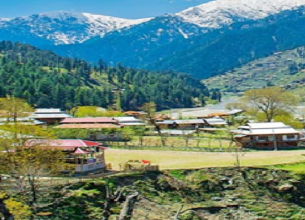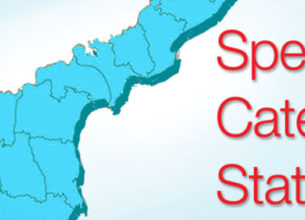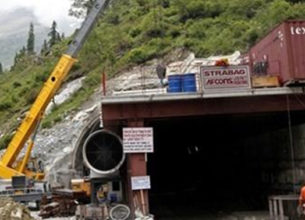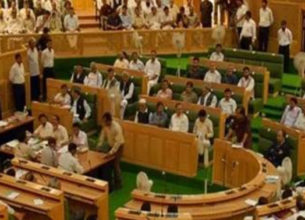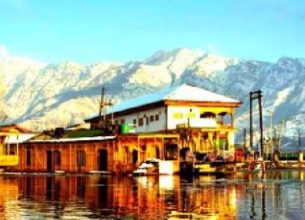CENTRE IN TALKS WITH J&K, LADAKH ON SPECIAL STATUS
14, Dec 2019
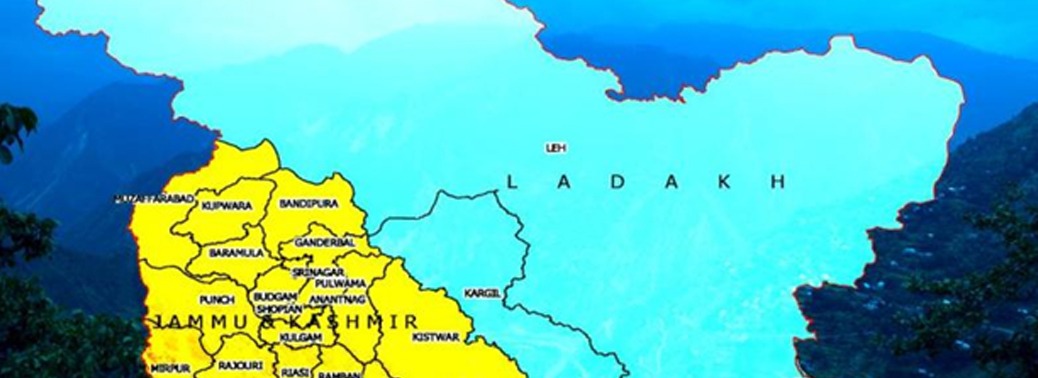
Prelims level : Institutional Reforms
Mains level : GS-II Indian Constitution- historical underpinnings, evolution, features, Amendments, Significant Provisions and basic structure.
Why in News?
- The Ministry of Home Affairs (MHA) is holding consultations with the Union Territories of Jammu and Kashmir (J&K) and Ladakh to grant them “special status” on the lines of Article 371 of the Constitution.
Special Status under Article 371:
- Articles 369 through 392 appear in Part XXI of the Constitution, titled ‘Temporary, Transitional and Special Provisions’.
- Article 371 of the Constitution includes “special provisions” for 11 states, including six states of the Northeast.
- Articles 370 and 371 were part of the Constitution at the time of its commencement on January 26, 1950; Articles 371A through 371J were incorporated subsequently.
- While Article 370, which limited purchase and inheritance of property to permanent residents, was scrapped for J&K, similar provisions provided under Article 371 in many states are still in force.
States that are under Article 371:
- Article 371, Maharashtra and Gujarat:
- 1. Governor has “special responsibility” to establish “separate development boards” for “Vidarbha, Marathwada, and the rest of Maharashtra”, and Saurashtra and Kutch in Gujarat;
- 2. It ensures “equitable allocation of funds for developmental expenditure over the said areas”, and “equitable arrangement providing adequate facilities for technical education and vocational training, and adequate opportunities for employment” under the state government.
- Article 371A (13th Amendment Act, 1962), Nagaland:
- 1. Inserted after a 16-point agreement between the Centre and the Naga People’s Convention in 1960, which led to the creation of Nagaland in 1963.
- 2. Parliament cannot legislate in matters of Naga religion or social practices, Naga customary law and procedure, administration of civil and criminal justice involving decisions according to Naga customary law, and ownership and transfer of land without concurrence of the state Assembly.
- Article 371B (22nd Amendment Act, 1969), Assam:
- The President may provide for the constitution and functions of a committee of the Assembly consisting of members elected from the state’s tribal areas.
- Article 371C (27th Amendment Act, 1971), Manipur:
- The President may provide for the constitution of a committee of elected members from the Hill areas in the Assembly, and entrust “special responsibility” to the Governor to ensure its proper functioning.
- Article 371D (32nd Amendment Act, 1973; substituted by The Andhra Pradesh Reorganization Act, 2014), Andhra Pradesh and Telangana:
- 1. President must ensure “equitable opportunities and facilities” in “public employment and education to people from different parts of the state”.
- 2. He may require the state government to organize “any class or classes of posts in a civil service of, or any class or classes of civil posts under, the State into different local cadres for different parts of the State”.
- 3. He has similar powers vis-à-vis admissions in educational institutions.
- Article 371E:
- Allows for the establishment of a university in Andhra Pradesh by a law of Parliament. But this is not a “special provision” in the sense of the others in this part.
- Article 371F (36th Amendment Act, 1975), Sikkim:
- 1. The members of the Legislative Assembly of Sikkim shall elect the representative of Sikkim in the House of the People.
- 2. To protect the rights and interests of various sections of the population of Sikkim, Parliament may provide for the number of seats in the Assembly, which may be filled only by candidates from those sections.
- Article 371G (53rd Amendment Act, 1986), Mizoram:
- Parliament cannot make laws on “religious or social practices of the Mizos, Mizo customary law and procedure, administration of civil and criminal justice involving decisions according to Mizo customary law, ownership and transfer of land… unless the Assembly… so decides”.
- Article 371H (55th Amendment Act, 1986), Arunachal Pradesh:
- The Governor has a special responsibility with regard to law and order, and “he shall, after consulting the Council of Ministers, exercise his individual judgment as to the action to be taken”.
- Article 371I Goa:
- The Legislative Assembly of the state of Goa must consist of not less than 30 members.
- Article 371J (98th Amendment Act, 2012), Karnataka:
- 1. There is a provision for a separate development board for the Hyderabad-Karnataka region. There shall be “equitable allocation of funds for developmental expenditure over the said region”, and “equitable opportunities and facilities” for people of this region in government jobs and education.
- 2. A proportion of seats in educational institutions and state government jobs in Hyderabad-Karnataka can be reserved for individuals from that region.
Significance of Special Status:
- The intention behind these provisions is to safeguard the interest and aspirations of certain backward regions or to protect cultural and economic interests of the tribal people or to deal with the disturbed law and order in some parts.
Difference between Special Status and Special Category Status:
- The constitution provides special status through an Act that has to be passed by 2/3rds majority in both the houses of Parliament whereas the special category status is granted by the National Development Council, which is an administrative body of the government.
- For example, Jammu and Kashmir enjoyed a special status as per Article 370 and also special category status.
- But now that Article 35A has been scrapped and it has become a union territory with legislature, special category status doesn’t apply to J&K anymore.
Criteria for special category status:
- Hilly and difficult terrain
- Low population density or sizeable share of tribal population
- Strategic location along borders with neighbouring countries
- Economic and infrastructural backwardness
- Non-viable nature of state finances
Who grants Special Category status to states?
- The decision to grant special category status lies with the National Development Council, composed of the prime minister, union ministers, chief ministers and members of the planning commission, who guide and review the work of the commission.
- Special category status for plan assistance has been granted in the past by the National Development Council (NDC) to some states that are characterized by a number of features necessitating special consideration.
Benefits for States confer with Special Category Status:
- States which are granted Special Category Status Enjoy Several Benefits.
- The central government bears 90 percent of the state expenditure on all centrally-sponsored schemes and external aid while rest 10 percent is given as loan to state at zero percent rate of interest.
- Preferential treatment in getting central funds.
- Concession on excise duty to attract industries to the state.
- 30 percent of the Centre’s gross budget also goes to special category states.
- These states can avail the benefit of debt-swapping and debt relief schemes.
- States with special category status are exempted from customs duty, corporate tax, income tax and other taxes to attract investment.
- Special category states have the facility that if they have unspent money in a financial year; it does not lapse and gets carry forward for the next financial year.




